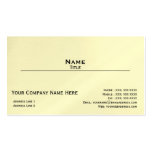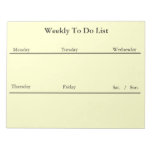If you’re adding an employee to your business for the first time, you may be a bit unsure of what’s required of you. Here’s a quick 7-item new hire checklist to help you get started:
New Hire Checklist
1. Get Your FEIN
A FEIN is a Federal Employer Identification Number. You may already have one of these (they are often required to open bank accounts in a business name). But if you do not, it’s an important first step on the mountain of paperwork you’re about to climb.2. Document the Employee is Legally Allowed to Work
This involves verifying both their identity and that they are legal for employment in the United States. Once they have presented you with the necessary documentation to verify this, you can fill out their I-9 form. Unlike the forms below, you needn’t submit this to anyone. However, it is crucial to have this document on file for the authorities, should they ever request to examine it.3. Have the Employee Fill Out Tax Forms
Chief among these is the W-4. This form, from the IRS, will let you know how much to withhold from each of the employee’s paychecks for federal tax purposes. In addition, most states have state income taxes, which will require their own form or forms. The only item you should need to fill out on these forms is your FEIN.4. Report Your New Hire to the State
Most states require that you inform them of new hires within 20 days of their hire date. This will require that you provide information that you will have collected on the preceding forms, including the employee’s name, address, SSN and hire date. While you’re in contact with your state’s Department of Labor, it’s smart to ask what labor posters are necessary so that you can…5. Post the Appropriate Notices
The federal government, as well as all state governments, have certain labor law posters that are required to appear prominently in any workplace with employees. Make sure you check with your state’s Department of Labor to get the most recent versions of these, and put them up on or before your employee’s first day. Anything less could get you fined.6. Don’t Forget Worker’s Comp
Most states (with the exception of Texas) require you to purchase Worker’s Compensation insurance, even if you have only one employee. Assuming you already have business insurance, you can likely get this coverage through the same insurer. If you’re building a drug-free workplace (via testing), there’s a chance you’ll even be able to get a discount.7. Create an Employee File
Finally, you’ll need a place to keep all of these forms, as well as other required documentation. Specifically, the Department of Labor requires that you have on file for all employees: personal information, compensation, payroll deductions, records of hours worked, and records of compensation.One last thing: This new hire checklist was not designed to be a comprehensive list, nor was it written by a lawyer. It may be outdated and there may be missing pieces, so be sure to consult with your legal and accounting advisers to ensure full compliance with all federal, state, and local laws.






No comments:
Post a Comment